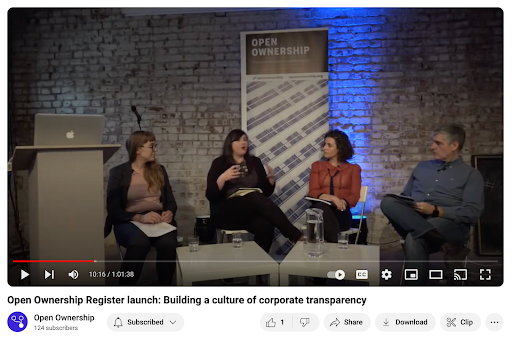Developing the world's first transnational open beneficial ownership register: A brief history of the Open Ownership Register
Launch
The plan to build what was first called the Global Beneficial Ownership Register, or GBOR, was first unveiled on 4 April 2016 in a blog post on the Open Contracting Partnership website. Featuring quotes from a coalition of organisations which would go on to form Open Ownership’s Steering Group, the announcement was published the day after the first stories based on the Panama Papers leaks were released by the International Consortium of Investigative Journalists (ICIJ), highlighting how anonymous and offshore companies were facilitating corruption across the globe.
The drive behind the initiative came from the team at OpenCorporates, which has created the largest open database of legal entities in the world. Starting in December 2014, the OpenCorporates team announced they had started work on WhoControlsIt, a proof-of-concept beneficial ownership register. A website was launched and open source code released. A hack day followed in early 2015.
In October 2016, at the fourth International Open Data Conference in Madrid, Chris Taggart and Hera Hussain of OpenCorporates participated in a session to discuss how open company data helps shed light on corruption and anonymous companies.
Reflecting on this event and progress on commitments to end anonymous company ownership, Hussain later elaborated on plans to create the GBOR as well as the first steps towards creating BODS, an open standard providing guidance for collecting, sharing, and using high-quality data on beneficial ownership.
After months of work, the unveiling of the first version of the OO Register took place on 3 April 2017, the one-year anniversary of the Panama Papers leaks. A video recording of the launch was uploaded to the Open Ownership YouTube channel.

Initially, the OO Register contained BOI on 1.9 million companies spanning 26 jurisdictions thanks to data from the UK PSC Register, Slovakia’s Public Sector Partners Register (Register partnerov verejného sektora, RPVS), the Extractive Industries Transparency Initiative (EITI), and self-reported data from a small number of companies.
The priorities for the initial OO Register were twofold:
- Make a one-stop shop for BO investigations.
- Gain insights into the best model for an international data standard.